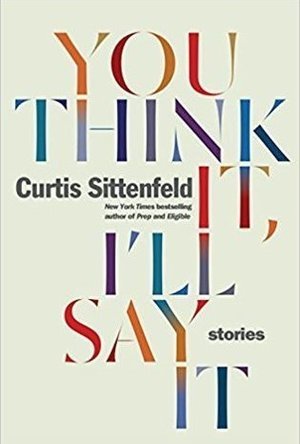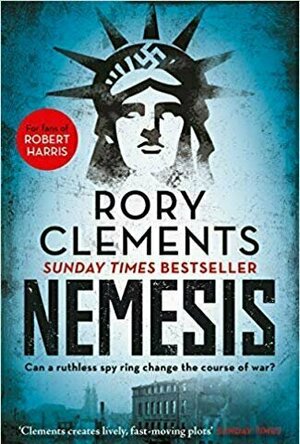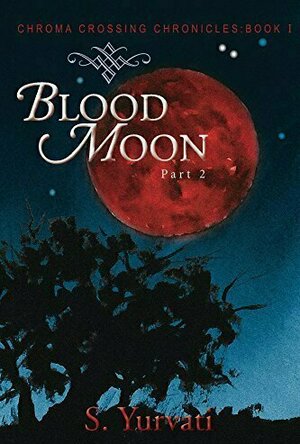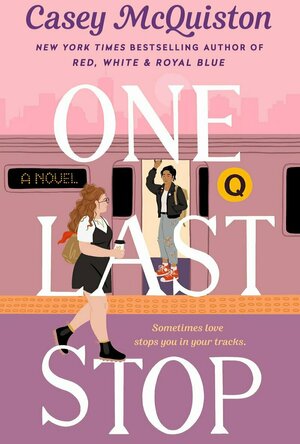Search
Search results
Kristy H (1252 KP) rated You Think It, I'll Say It in Books
Apr 19, 2018
Great, satisfying set of stories
This short story collection features ten short stories from author Sittenfeld, featuring a cast of diverse, real characters. Told from a variety of point of views--a bored housewife, a wealthy bachelor, a new mom, and more--they offer pointed and humorous insight into current society.
I typically am not a huge fan of short stories because they don't give me enough information about the characters, and I'm a very character-driven person. But when I saw that Curtis Sittenfeld had a short story collection coming out, I knew I wouldn't be able to resist. She gets a lot of press for Prep, but I feel like American Wife and Eligible are both still so fully ingrained in my brain. I loved them both so much, and they are go-to recommendations when I get the standard, "oh you like to read, what should I read?" question.
But, I digress. Sittenfeld. Short stories. I shouldn't have been surprised, honestly, that her collection would be above the typical fare. I probably enjoyed this set of short stories more than any other I've read in ages. It's so well-written and engaging. As with Sittenfeld's other work, the stories are so wonderfully descriptive, so you can immediately picture the characters and their situations. I felt like I was quickly transported to the setting of each story as soon as it began.
The stories are similar but not repetitive, which was also refreshing, and seem to be real, instead of striving to reach some sort of literary bar that makes them tedious and therefore unreadable. They are about real, relatable characters struggling with misinformed impressions, lingering resentments, and different types of relationships. But - oh hooray - even better, the majority of the stories didn't leave me with that unfinished feeling. They are honestly fascinating, and I enjoyed how they all start (I enjoyed them all the way through too, of course, but it seemed like each had a bit of a common thread in its beginning). I could have read more about each story's characters, sure, but I didn't feel frustrated when they ended, which was so amazing and different for me.
I really liked each and every story. For instance, there's "Vox Clamantis in Deserto" which begins with a woman (girl?) who idolizes a fellow college student from afar in line at the post office. Two of the stories, "Plausible Deniability" and "The Prairie Wife," had actual twists and surprises, which was so much fun. And some of the longing that came across in these characters was very touching and heartfelt. I have a soft spot for slightly nerdy high school/college kids, even once they're all grown up, and for slightly fatigued moms, so these stories were my cup of tea.
Overall, this was a great set of short stories. They are filled with real people set in complicated yet enjoyable and interesting situations. They are easy-to-read and don't leave you wanting for more--except maybe more stories. This only cements my feeling that I'll continue to read (and adore) anything Ms. Sittenfeld writes.
I received a copy of this story collection from the publisher and Netgalley in return for an unbiased review.
I typically am not a huge fan of short stories because they don't give me enough information about the characters, and I'm a very character-driven person. But when I saw that Curtis Sittenfeld had a short story collection coming out, I knew I wouldn't be able to resist. She gets a lot of press for Prep, but I feel like American Wife and Eligible are both still so fully ingrained in my brain. I loved them both so much, and they are go-to recommendations when I get the standard, "oh you like to read, what should I read?" question.
But, I digress. Sittenfeld. Short stories. I shouldn't have been surprised, honestly, that her collection would be above the typical fare. I probably enjoyed this set of short stories more than any other I've read in ages. It's so well-written and engaging. As with Sittenfeld's other work, the stories are so wonderfully descriptive, so you can immediately picture the characters and their situations. I felt like I was quickly transported to the setting of each story as soon as it began.
The stories are similar but not repetitive, which was also refreshing, and seem to be real, instead of striving to reach some sort of literary bar that makes them tedious and therefore unreadable. They are about real, relatable characters struggling with misinformed impressions, lingering resentments, and different types of relationships. But - oh hooray - even better, the majority of the stories didn't leave me with that unfinished feeling. They are honestly fascinating, and I enjoyed how they all start (I enjoyed them all the way through too, of course, but it seemed like each had a bit of a common thread in its beginning). I could have read more about each story's characters, sure, but I didn't feel frustrated when they ended, which was so amazing and different for me.
I really liked each and every story. For instance, there's "Vox Clamantis in Deserto" which begins with a woman (girl?) who idolizes a fellow college student from afar in line at the post office. Two of the stories, "Plausible Deniability" and "The Prairie Wife," had actual twists and surprises, which was so much fun. And some of the longing that came across in these characters was very touching and heartfelt. I have a soft spot for slightly nerdy high school/college kids, even once they're all grown up, and for slightly fatigued moms, so these stories were my cup of tea.
Overall, this was a great set of short stories. They are filled with real people set in complicated yet enjoyable and interesting situations. They are easy-to-read and don't leave you wanting for more--except maybe more stories. This only cements my feeling that I'll continue to read (and adore) anything Ms. Sittenfeld writes.
I received a copy of this story collection from the publisher and Netgalley in return for an unbiased review.
Gareth von Kallenbach (980 KP) rated Sex and the City 2 (2010) in Movies
Aug 8, 2019
So what happens after you finally marry Mr. Right (or in this case, Mr. Big)? Carrie (Sarah Jessica Parker) and Big (Chris Noth) have been married for almost 2 years now and are in danger of falling into a tired routine. After eschewing the latest fashions for classic furnishings to make their new flat a home, Carrie no longer laments over her singlehood. Instead she bemoans becoming part of an old, married couple. She bristles at the idea of staying home and eating takeout while her husband just wants to put his feet up on the couch.
Charlotte (Kristin Davis) remains the picture-perfect mother and wife, adding a new baby to her home. One that cries constantly and forces her to hire a nanny. A buxom, Irish nanny named Erin who quickly earns the fitting nickname “Erin Go Bra-less” from Charlotte’s best friends. Watch Charlotte’s cheery smile become brittle and harder to keep in place as the demands of motherhood and doubts the ability of her husband Harry (Evan Handler) to resist temptation become too much to handle.
Miranda (Cynthia Nixon) is reconciled with Steve (David Eigenberg), and is finally a partner at her law firm but it hasn’t brought her the satisfaction she thought it would. She’s stressed and aggravated by a senior partner who demeans her and she starts to question whether being an attorney is worth it anymore.
Samantha (Kim Cattrall) is very much the same bawdy temptress, minus her boy-toy, plus a lot of vitamins to stave off menopausal symptoms. This time around, no major drama sends the ladies off on an exotic trip, just Samantha working her public relations charm on a shiekh with a palatial hotel. Apparently, sometimes girls just need to getaway to Abu-Dhabi. The movie soon becomes an indulgent showcase of excess from a flight in a plane equipped with individual suites, a bar & lounge, to a Maybach and a personal butler for each of the ladies.
Anyone watching SATC2 without the background of the series and the first film will think they entered an alien world of shallow, whiny women who like to wear clashing colors and ridiculous hats. Fans of the series will probably forgive the tired puns and trite storylines to embrace the familiar: four friends in fabulous, outrageous, fashion and comical situations, with an extravagant, lush backdrop.
Screened in a theater where women outnumbered men 3 to 1, many of the laughs were tinged with almost as much horror as delight. I usually enjoy musical numbers in movies, but I fought the urge to cover my eyes when Liza Minelli performed Beyonce’s “Single Ladies” at a wedding early in the movie. The girlfriends’ karaoke rendition of “I Am Woman” was also an uncomfortable moment for all its corniness. But amidst the splashy abundance, there were moments of honest friendship that resonated, unfortunately they’re overshadowed by annoying antics and reckless decisions.
Sure to spark lively debates on friendship, relationships, careers, and questionable fashion, this is still an entertaining film that, if nothing else, would make a great date night movie with your girlfriends. Especially those whose friendships have spanned decades and who can recognize a little bit of themselves in these women. Note to men: if you want to know where the women may be this weekend, the theaters would be a good bet.
Charlotte (Kristin Davis) remains the picture-perfect mother and wife, adding a new baby to her home. One that cries constantly and forces her to hire a nanny. A buxom, Irish nanny named Erin who quickly earns the fitting nickname “Erin Go Bra-less” from Charlotte’s best friends. Watch Charlotte’s cheery smile become brittle and harder to keep in place as the demands of motherhood and doubts the ability of her husband Harry (Evan Handler) to resist temptation become too much to handle.
Miranda (Cynthia Nixon) is reconciled with Steve (David Eigenberg), and is finally a partner at her law firm but it hasn’t brought her the satisfaction she thought it would. She’s stressed and aggravated by a senior partner who demeans her and she starts to question whether being an attorney is worth it anymore.
Samantha (Kim Cattrall) is very much the same bawdy temptress, minus her boy-toy, plus a lot of vitamins to stave off menopausal symptoms. This time around, no major drama sends the ladies off on an exotic trip, just Samantha working her public relations charm on a shiekh with a palatial hotel. Apparently, sometimes girls just need to getaway to Abu-Dhabi. The movie soon becomes an indulgent showcase of excess from a flight in a plane equipped with individual suites, a bar & lounge, to a Maybach and a personal butler for each of the ladies.
Anyone watching SATC2 without the background of the series and the first film will think they entered an alien world of shallow, whiny women who like to wear clashing colors and ridiculous hats. Fans of the series will probably forgive the tired puns and trite storylines to embrace the familiar: four friends in fabulous, outrageous, fashion and comical situations, with an extravagant, lush backdrop.
Screened in a theater where women outnumbered men 3 to 1, many of the laughs were tinged with almost as much horror as delight. I usually enjoy musical numbers in movies, but I fought the urge to cover my eyes when Liza Minelli performed Beyonce’s “Single Ladies” at a wedding early in the movie. The girlfriends’ karaoke rendition of “I Am Woman” was also an uncomfortable moment for all its corniness. But amidst the splashy abundance, there were moments of honest friendship that resonated, unfortunately they’re overshadowed by annoying antics and reckless decisions.
Sure to spark lively debates on friendship, relationships, careers, and questionable fashion, this is still an entertaining film that, if nothing else, would make a great date night movie with your girlfriends. Especially those whose friendships have spanned decades and who can recognize a little bit of themselves in these women. Note to men: if you want to know where the women may be this weekend, the theaters would be a good bet.
Ivana A. | Diary of Difference (1171 KP) rated Nemesis in Books
Feb 3, 2020
<a href="https://diaryofdifference.com/">Blog</a>; | <a href="https://www.facebook.com/diaryofdifference/">Facebook</a>; | <a href="https://twitter.com/DiaryDifference">Twitter</a>; | <a href="https://www.instagram.com/diaryofdifference/">Instagram</a>; | <a href="https://www.pinterest.co.uk/diaryofdifference/pins/">Pinterest</a>;
<b>The Tom Wilde Series</b>
#1 <a href="https://www.goodreads.com/review/show/2780335366">Corpus</a>; - Not Read Yet
#2 <a href="https://www.goodreads.com/review/show/2780335377">Nucleus</a>; - Not Read Yet
#3 <a href="https://www.goodreads.com/review/show/2664038091">Nemesis</a>; - ★★★★★
<img src="https://diaryofdifference.com/wp-content/uploads/2019/04/New-blog-banner-13.png"/>;
<b><i>Nemesis is the third book from the Tom Wilde series by Rory Clements. I haven't read the previous two books, and I also haven't read any books from Rory Clements before. I received this book through ReadersFirst, and I will be honest, I was quite reluctant to read it. You already know my opinion on reading sequels before reading the previous books - but I went in blind in this book.</i></b>
The blue cover is simply gorgeous and I knew it was a thriller and a mystery, so I decided this was enough to get me going. If this book review ever captures your attention, I advise you to also go in blind. I think going blind made me enjoy this book even more.The fact that this is a third book in a series doesn't mean anything. The only similarity with the other books is the main character. Almost the same basis as Dan Brown's series and his professor Robert Langdon. The books are entirely standalones.
It is very hard to reveal what the plot is about without spoiling the fun. Tom Wilde is a university professor and one of his very talented students, Marcus, has left to join the International Brigades in Spain. Now, two years after, he is in trouble, and Tom helps him come home.
Meanwhile, numerous things happen, involving World War 2 Politics and propaganda, and in these times, no one knows who to trust. And when Tom Wilde finds himself in great danger, who will help him? And who does he needs to be afraid from? Has maybe helping Marcus been his greatest mistake?
Nemesis is full of suspense from the very first chapter, and the thing I loved the most about it was that the chapters are quite short, and always leave you hanging, hungry to find out more. Every word that Rory Clements types had a meaning and a purpose in this book, and that was the bit I admired the most.
The time setting revolves around the Second World War - a subject I don't often read about. I can't judge about the historical fiction element. However I do know that while I am a person that doesn't enjoy war books, this one struck me in a nice way. The war setting was very well written, and you could even feel the atmosphere around it. The ending was pleasantly surprising and it involved a mystery I could simply not resist.
<b>I will definitely read more books by Rory Clements, as I really enjoy the writing. If you enjoy thrillers and if you are a fan of Dan Brown, you will probably enjoy Nemesis a lot!</b>
<a href="https://diaryofdifference.com/">Blog</a>; | <a href="https://www.facebook.com/diaryofdifference/">Facebook</a>; | <a href="https://twitter.com/DiaryDifference">Twitter</a>; | <a href="https://www.instagram.com/diaryofdifference/">Instagram</a>; | <a href="https://www.pinterest.co.uk/diaryofdifference/pins/">Pinterest</a>;
<b>The Tom Wilde Series</b>
#1 <a href="https://www.goodreads.com/review/show/2780335366">Corpus</a>; - Not Read Yet
#2 <a href="https://www.goodreads.com/review/show/2780335377">Nucleus</a>; - Not Read Yet
#3 <a href="https://www.goodreads.com/review/show/2664038091">Nemesis</a>; - ★★★★★
<img src="https://diaryofdifference.com/wp-content/uploads/2019/04/New-blog-banner-13.png"/>;
<b><i>Nemesis is the third book from the Tom Wilde series by Rory Clements. I haven't read the previous two books, and I also haven't read any books from Rory Clements before. I received this book through ReadersFirst, and I will be honest, I was quite reluctant to read it. You already know my opinion on reading sequels before reading the previous books - but I went in blind in this book.</i></b>
The blue cover is simply gorgeous and I knew it was a thriller and a mystery, so I decided this was enough to get me going. If this book review ever captures your attention, I advise you to also go in blind. I think going blind made me enjoy this book even more.The fact that this is a third book in a series doesn't mean anything. The only similarity with the other books is the main character. Almost the same basis as Dan Brown's series and his professor Robert Langdon. The books are entirely standalones.
It is very hard to reveal what the plot is about without spoiling the fun. Tom Wilde is a university professor and one of his very talented students, Marcus, has left to join the International Brigades in Spain. Now, two years after, he is in trouble, and Tom helps him come home.
Meanwhile, numerous things happen, involving World War 2 Politics and propaganda, and in these times, no one knows who to trust. And when Tom Wilde finds himself in great danger, who will help him? And who does he needs to be afraid from? Has maybe helping Marcus been his greatest mistake?
Nemesis is full of suspense from the very first chapter, and the thing I loved the most about it was that the chapters are quite short, and always leave you hanging, hungry to find out more. Every word that Rory Clements types had a meaning and a purpose in this book, and that was the bit I admired the most.
The time setting revolves around the Second World War - a subject I don't often read about. I can't judge about the historical fiction element. However I do know that while I am a person that doesn't enjoy war books, this one struck me in a nice way. The war setting was very well written, and you could even feel the atmosphere around it. The ending was pleasantly surprising and it involved a mystery I could simply not resist.
<b>I will definitely read more books by Rory Clements, as I really enjoy the writing. If you enjoy thrillers and if you are a fan of Dan Brown, you will probably enjoy Nemesis a lot!</b>
<a href="https://diaryofdifference.com/">Blog</a>; | <a href="https://www.facebook.com/diaryofdifference/">Facebook</a>; | <a href="https://twitter.com/DiaryDifference">Twitter</a>; | <a href="https://www.instagram.com/diaryofdifference/">Instagram</a>; | <a href="https://www.pinterest.co.uk/diaryofdifference/pins/">Pinterest</a>;
Gareth von Kallenbach (980 KP) rated Nightcrawler (2014) in Movies
Aug 6, 2019
The concept of the American dream is generally thought of as ascending to great heights of success. For some, that means creating something out of nothing. They can do this either through lots of hard work, or by having a stroke of good luck.
“Nightcrawler” centers around Louis Bloom (Jake Gyllenhaal), a young man who is attempting to do just that – create something out of nothing and ascend to great heights of success.
Truly a schmuck by every definition of the word, Louis is a contemptible character. He lies, steals, and bends every rule in pursuit of the almighty dollar. This makes for a character that people will love to hate.
Louis discovers a grand opportunity to make money by essentially playing paparazzi to the world of crime. A skill in high demand in a news industry which sensationalizes violence and crime in order to gain ratings.
The film portrays the workings of the news media as somewhat twisted. The industry plays off of the naivety of the American public.
This theme builds throughout the movie, becoming more and more apparent. It hints at an uncertainty of the ethics of crime news coverage. This message is perhaps intended to extend beyond the silver screen and into the real world.
A thriller with depth, “Nightcrawler” is one hell of a debut for director Dan Gilroy. In addition to the unique and complex plot line, the cast is expertly selected.
Each character achieves a raw realness that turns the audience into witnesses rather than movie goers.
Gyllenhaal, who lost 20 pounds for the role, has mastered the art of portraying madness. His eyes communicate a certain detached sadness, yet at the same time he appears egotistical. His expression exudes an inner dialogue which is fleeting and somewhat absent from reality. He is the main character in the movie, as well as in his own mind.
The evolution which his character, Louis, exhibits is electrifying. He is a man in constant motion – doing whatever it takes to succeed, and sinking deeper into the dark side of a news media that lives off of ratings.
The film starts to resemble a gory train wreck which one cannot resist but to stare at as it follows Louis. In order to get the perfect shot, he pushes the line of morality further and further. His morally questionable character begins to blur into the realm of psychotic.
Human lives begin to be something of a commodity when on the other side of a lens. Nina (Rene Russo), a news director desperate to stay in demand is determined to stay focused on theme of urban crime creeping into suburban neighborhoods. She knows this is what grabs attention, and despite reality, she intends to deliver a particular story to viewers.
Russo’s tired eyes add to the realness of the dramatic story. She is just one of the characters which may confuse the audience in regards to who is “good” and who is “bad.” The interplay between characters who cannot be defined as good or bad creates a massively entertaining drama.
The deeper message of the film is left up for interpretation. Perhaps many people are just “not so good,” then there’s Louis who most people won’t be able to help but loath.
A true statement piece, “Nightcrawler” delivers a nauseating cinematic rush.
I give “Nightcrawler” 5 out of 5 stars.
“Nightcrawler” centers around Louis Bloom (Jake Gyllenhaal), a young man who is attempting to do just that – create something out of nothing and ascend to great heights of success.
Truly a schmuck by every definition of the word, Louis is a contemptible character. He lies, steals, and bends every rule in pursuit of the almighty dollar. This makes for a character that people will love to hate.
Louis discovers a grand opportunity to make money by essentially playing paparazzi to the world of crime. A skill in high demand in a news industry which sensationalizes violence and crime in order to gain ratings.
The film portrays the workings of the news media as somewhat twisted. The industry plays off of the naivety of the American public.
This theme builds throughout the movie, becoming more and more apparent. It hints at an uncertainty of the ethics of crime news coverage. This message is perhaps intended to extend beyond the silver screen and into the real world.
A thriller with depth, “Nightcrawler” is one hell of a debut for director Dan Gilroy. In addition to the unique and complex plot line, the cast is expertly selected.
Each character achieves a raw realness that turns the audience into witnesses rather than movie goers.
Gyllenhaal, who lost 20 pounds for the role, has mastered the art of portraying madness. His eyes communicate a certain detached sadness, yet at the same time he appears egotistical. His expression exudes an inner dialogue which is fleeting and somewhat absent from reality. He is the main character in the movie, as well as in his own mind.
The evolution which his character, Louis, exhibits is electrifying. He is a man in constant motion – doing whatever it takes to succeed, and sinking deeper into the dark side of a news media that lives off of ratings.
The film starts to resemble a gory train wreck which one cannot resist but to stare at as it follows Louis. In order to get the perfect shot, he pushes the line of morality further and further. His morally questionable character begins to blur into the realm of psychotic.
Human lives begin to be something of a commodity when on the other side of a lens. Nina (Rene Russo), a news director desperate to stay in demand is determined to stay focused on theme of urban crime creeping into suburban neighborhoods. She knows this is what grabs attention, and despite reality, she intends to deliver a particular story to viewers.
Russo’s tired eyes add to the realness of the dramatic story. She is just one of the characters which may confuse the audience in regards to who is “good” and who is “bad.” The interplay between characters who cannot be defined as good or bad creates a massively entertaining drama.
The deeper message of the film is left up for interpretation. Perhaps many people are just “not so good,” then there’s Louis who most people won’t be able to help but loath.
A true statement piece, “Nightcrawler” delivers a nauseating cinematic rush.
I give “Nightcrawler” 5 out of 5 stars.
Ivana A. | Diary of Difference (1171 KP) rated Chroma Crossing Chronicles: Blood Moon Part 2 in Books
Apr 20, 2020
Blood Moon: Part 2 is the continuation of Blood Moon: Part 1. The second part starts where the first book ended. Candy entered a world with no colour and met a very handsome hunter, who tells her of the dangers she will face on the “Needing Moon”.
First of all - we have this monochromatic world covered in just beige colour and no other colours. The author made sure to note this a couple of times throughout the book, with no explanation whatsoever on why this is happening. Not even a clue or an event to prompt some curiosity in my way. I simply did not care about this colourless world.
Then, we have Candy in a new world and this man, her saviour, makes her his mate and becomes overprotective of her for no apparent reason. Yes, they have a passion bond forming, but he decides to keep her away from anyone, not let her get out of his palace and is about to kill anyone that even looks at her the wrong way. Yes - this is how males behave in this beige-world, but this still counts as captivity. She never addressed a wish to leave, but if she did - do you honestly think he will let her? Ha! I doubt it!
Then we have the “Needing Moon”.
Every full moon is a needing moon, where everything is about intercourse. And not just that, but devouring women and taking their dignity in the most harsh way. Apparently it affects everyone and no one can resist this sudden urge, and suddenly we have scenes of orgies and what not, and I am not sure what to think of all this…
During this Needing Moon event, Candy and this hunter spend a night or two having coitus, and then Candy has an accident that makes her forget everything about him. But the hunter needs to go on a journey, and not wanting to leave his missus at the palace, he makes her come with him and his soldiers - all men who think of her as a prey, but are too afraid to do anything because of their fear from the hunter, who also happens to be a king.
During the journey, they start to get to know each other again, playing a game of ego and arrogance. There is passion they have for each other but neither of them will confess first. And on top of that, in the end we find out that Candy did remember a little bit about him, after all. So she was lying throughout the book.
Which is slightly annoying.
And on top of all this, we don’t even see the characters that were mentioned in the first book. The end was somewhat unfinished, and it left things to reveal itself in the next book.
So it seemed that the first book was a prequel to the second, but the second book is a prequel to the third, and to be quite honest with you, I wouldn’t read the third book just to find out. I have gambled enough and I didn’t get what I came for in two books, so I don’t see myself finishing this series in this lifetime. Or the next.
I had really high hopes for this series, because even though the first book wasn’t my favourite, it did capture my attention, which is why I gave this book a chance. But this one disappointed me too much.
First of all - we have this monochromatic world covered in just beige colour and no other colours. The author made sure to note this a couple of times throughout the book, with no explanation whatsoever on why this is happening. Not even a clue or an event to prompt some curiosity in my way. I simply did not care about this colourless world.
Then, we have Candy in a new world and this man, her saviour, makes her his mate and becomes overprotective of her for no apparent reason. Yes, they have a passion bond forming, but he decides to keep her away from anyone, not let her get out of his palace and is about to kill anyone that even looks at her the wrong way. Yes - this is how males behave in this beige-world, but this still counts as captivity. She never addressed a wish to leave, but if she did - do you honestly think he will let her? Ha! I doubt it!
Then we have the “Needing Moon”.
Every full moon is a needing moon, where everything is about intercourse. And not just that, but devouring women and taking their dignity in the most harsh way. Apparently it affects everyone and no one can resist this sudden urge, and suddenly we have scenes of orgies and what not, and I am not sure what to think of all this…
During this Needing Moon event, Candy and this hunter spend a night or two having coitus, and then Candy has an accident that makes her forget everything about him. But the hunter needs to go on a journey, and not wanting to leave his missus at the palace, he makes her come with him and his soldiers - all men who think of her as a prey, but are too afraid to do anything because of their fear from the hunter, who also happens to be a king.
During the journey, they start to get to know each other again, playing a game of ego and arrogance. There is passion they have for each other but neither of them will confess first. And on top of that, in the end we find out that Candy did remember a little bit about him, after all. So she was lying throughout the book.
Which is slightly annoying.
And on top of all this, we don’t even see the characters that were mentioned in the first book. The end was somewhat unfinished, and it left things to reveal itself in the next book.
So it seemed that the first book was a prequel to the second, but the second book is a prequel to the third, and to be quite honest with you, I wouldn’t read the third book just to find out. I have gambled enough and I didn’t get what I came for in two books, so I don’t see myself finishing this series in this lifetime. Or the next.
I had really high hopes for this series, because even though the first book wasn’t my favourite, it did capture my attention, which is why I gave this book a chance. But this one disappointed me too much.

Indian for Everyone: The Home Cook's Guide to Traditional Favorites
Book
Now beautifully repackaged in convenient paperback format, Indian for Everyone is the third book by...
Kristy H (1252 KP) rated One Last Stop in Books
Jun 3, 2021
A dazzling, heartfelt queer romance
August Landry moves to New York City, just another stop among many in her quest to prove that she's fine being alone. Everything she owns fits in five boxes, and she sleeps on an inflatable mattress. She belongs nowhere and needs no one. But NYC feels different to August: her diverse group of roommates, who adopt her immediately; her job at an all-night pancake diner; and the subway. Because the subway brings Jane: beautiful, enigmatic, leather jacket-clad Jane. Then August realizes something; Jane is always on the subway because she has to be. She's trapped and displaced in time from the 1970s. It seems as if August--and her new band of friends--may be the only one to save her. Can August believe in something, someone, enough to free Jane?
"Truth is, when you spend your whole life alone, it's incredibly appealing to move somewhere big enough to get lost in, where being alone looks like a choice."
I've put off writing this review because it's hard to see how I can do McQuiston's beautiful romance any justice. This book is such a romantic, sexy, and heartwarming read. August is an excellent character. She's spent most of her life in her uncle's shadow, working with her mother to try to solve his missing person's case. August eventually declared herself done--done searching, done with mysteries. But then this beautiful woman appears on the subway, and she offers the biggest mystery of all to August. Why is Jane stuck on the subway and how can August help?
"And she can't believe Jane had the nerve, the audacity, to become the one thing August can't resist: a mystery."
McQuiston gives us the most amazing, diverse queer novel one could ever wish for. August is bi and Jane basically every lesbian's dream. It's impossible not to fall in love with this gorgeous Asian subway vision. Even better, through Jane and other events, it's a tribute to those who came before our generation. Jane was a (incredibly sexy) activist / riot girl in the 1970s, yet is shocked that you can typically be openly gay on the subway now. She comes to everyone's defense there. She's amazing. As for August's roommates, they are beautiful and diverse, including trans and gay characters, with the lovely Myla taking care of the group. There are several drag queens given legitimate, true storylines. To say how meaningful this is to the queer community--it's hard to even explain. All of these characters--roommates Myla, her boyfriend, Niko, and Wes; neighbor Isaiah; coworkers Lucie and Winfield--are real and treated with care. They are funny, flawed, and create the most amazing found family ever.
"Jane doesn't age. She's magnetic and charming and gorgeous. She... kind of lives underground."
As for August and Jane, this is a romance for the ages. This book is swoony and sexy. It will make you laugh; it will make you cry. McQuiston has written a lesbian character for us lesbians to ogle for years to come, and a romance to stack all other romances against. It's funny and heartwarming. There's magic and mystery. There's pancakes. It's a beautiful ode to New York City, the subway, and falling in love. There's seriously nothing not to love.
So yes, I loved this book. I love McQuiston's way with words--the humor, the romance, the way she allows the queer community to have meaningful love stories in our world. This book is flowing with passion, with beauty, and magic. 4.5+ stars.
"Truth is, when you spend your whole life alone, it's incredibly appealing to move somewhere big enough to get lost in, where being alone looks like a choice."
I've put off writing this review because it's hard to see how I can do McQuiston's beautiful romance any justice. This book is such a romantic, sexy, and heartwarming read. August is an excellent character. She's spent most of her life in her uncle's shadow, working with her mother to try to solve his missing person's case. August eventually declared herself done--done searching, done with mysteries. But then this beautiful woman appears on the subway, and she offers the biggest mystery of all to August. Why is Jane stuck on the subway and how can August help?
"And she can't believe Jane had the nerve, the audacity, to become the one thing August can't resist: a mystery."
McQuiston gives us the most amazing, diverse queer novel one could ever wish for. August is bi and Jane basically every lesbian's dream. It's impossible not to fall in love with this gorgeous Asian subway vision. Even better, through Jane and other events, it's a tribute to those who came before our generation. Jane was a (incredibly sexy) activist / riot girl in the 1970s, yet is shocked that you can typically be openly gay on the subway now. She comes to everyone's defense there. She's amazing. As for August's roommates, they are beautiful and diverse, including trans and gay characters, with the lovely Myla taking care of the group. There are several drag queens given legitimate, true storylines. To say how meaningful this is to the queer community--it's hard to even explain. All of these characters--roommates Myla, her boyfriend, Niko, and Wes; neighbor Isaiah; coworkers Lucie and Winfield--are real and treated with care. They are funny, flawed, and create the most amazing found family ever.
"Jane doesn't age. She's magnetic and charming and gorgeous. She... kind of lives underground."
As for August and Jane, this is a romance for the ages. This book is swoony and sexy. It will make you laugh; it will make you cry. McQuiston has written a lesbian character for us lesbians to ogle for years to come, and a romance to stack all other romances against. It's funny and heartwarming. There's magic and mystery. There's pancakes. It's a beautiful ode to New York City, the subway, and falling in love. There's seriously nothing not to love.
So yes, I loved this book. I love McQuiston's way with words--the humor, the romance, the way she allows the queer community to have meaningful love stories in our world. This book is flowing with passion, with beauty, and magic. 4.5+ stars.

My Diet Coach - Weight Loss
Health & Fitness and Lifestyle
App
My Diet Coach - Weight loss made fun and easy (: ** So, how does My Diet Coach HELP YOU LOSE...

Last Day Survival:Survivor
Games
App
Last Day Survival:Survivor is a free end zombie survival strategy, with only one target for all...

Thinkrolls
Education and Games
App
Set your child's mind in motion! Thinkrolls are the 26 smart characters in this award-winning app...





